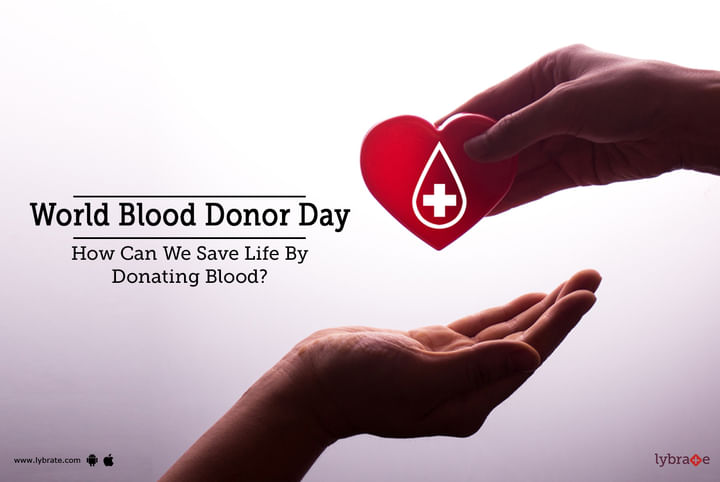World Blood Donor Day: How Can We Save Life By Donating Blood?
The world celebrates World Blood Donor Day on the 14th of June to raise awareness of the need for safe blood and blood products and to thank voluntary and unpaid blood donors for their life-saving gift of blood.
Importance of Blood Donation
The importance of donating blood is not only to save the lives of thousands of people who are deprived of life but also to save the lives of many more who are affected by the various diseases.
It has also been seen that when people;e have donated their blood, they have gained many health benefits as it helps in weight loss, helps maintain healthy liver and iron levels, it helps reduce the risk of heart attack and cancer.
A blood donation can save a life of-
-
Victims of natural disasters, including earthquakes
-
Patients with hemophilia, sickle cell disease, or cancer
-
People who suffer traumatic injuries from being in a car accident
-
Surgery patients
-
Shooting or stabbing victims
-
Women who suffer complications during childbirth
Blood Types That Are Needed Most
It’s good to donate if you’re healthy. However, there’s always a need for specific blood and plasma which are universal and can be used when a patient blood type is unknown. for newborn infants or if a patient's particular blood type is unavailable.
-
Type O negative blood is always needed because it can be used in patients regardless of their blood type.
-
Type AB positive plasma can also be transfused to patients with other blood types.
Donations Are Constantly Needed
Because of their short shelf life of 5 days after being collected, platelet donations are constantly by the blood blank. Red blood cells also have a short shelf life and needed to be used within 42 days after the collection. Cryoprecipitate and Plasma can be frozen and stored for up to a year after donation.
Some Misconceptions about Blood Donations
-
The donor will not experience any kind of pain while donating.
-
There will be no scarcity of blood in the body after donating the blood as even after the donation the body will have a surplus quantity of blood.
-
The common misconception everyone has is that they will faint after donating their blood.
-
You will be able to resume your everyday activity immediately after donating the blood.
-
You will not get infected with AIDS if you donate your blood.
Donating blood is a great way to give back to your community and potentially save a life by only giving up an hour of your time.



+1.svg)
